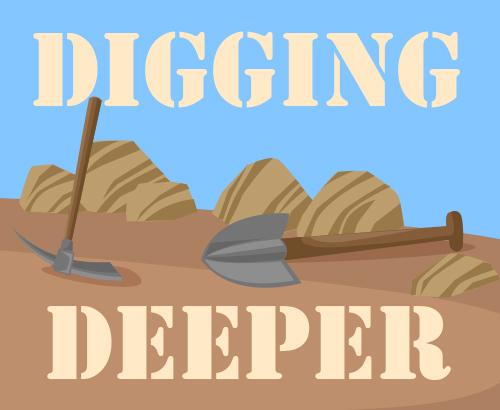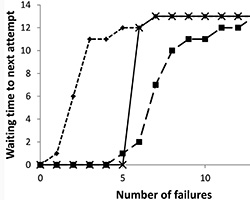
Does Past Experience Affect Depression?
show/hide words to know
What's in the Story?
A similar thing can happen when a person is depressed. Even if things improve for someone, their mood might not. Scientists thought that this may have to do with the person’s past experiences and how often life occurrences change between good and bad.
Whether or not we realize it, what happens in the past affects our behavior in the present. Learning from the past is important for survival. For example, humans and other animals may need to remember where water collects after a rain, where the best food sources are, or which neighbors they don’t get along with.
Stressful Life Events
Life can be hard. There are several life events that can cause low mood, loss of appetite, or other symptoms of depression. These might include getting a bad grade on a test, getting into a fight with a friend, or losing a loved one. It is natural to feel tired, antisocial, and sad following an upsetting event.

Depression may be rooted in behaviors that were useful previously under certain conditions. Image by Sander van der Wel from the Netherlands.
If we assume that a person reacts in a depressed way to a sad event, we’d also expect her or him to react in a happy way to the next positive experience. But scientists have found that a person with depression can sometimes have a very difficult time doing this.
Model Behavior
To try to figure out whether the length of depressive behavior varies from person to person, scientists came up with a scientific model they could test.
For the model, scientists simplified the natural environment as much as they could. Our environment is either in a good condition, meaning resources are abundant, or in a bad condition, meaning resources are scarce. But conditions aren’t always good or always bad. So this means that the environment must change, and it has a rate at which it switches between good and bad conditions. This switching rate can either be fast, meaning that the environment can go from being good to bad in a day or two, or the switching rate can be slow, meaning that the environment can go from good to bad in a span of weeks.

How successful you've been at a game may affect your interest in playing future games. Image by Gaz.
The model showed that if a lot of successes came before a failure, the amount of time of rest after a few failures was long. Fewer successes before a failure resulted in a shorter period of rest after a failure. That might seem a little strange, so let’s take a closer look.
The Good Times and the Bad Times
If someone was used to being successful and was met with a few failures, why would they wait a long time before trying again? Remember, this has to do with the type of environment they are in. There are good environments and bad environments. The environment can also switch. But sometimes switching is slow. If the environment has been good for a long time, it’s likely that it’s a slow-switching environment. So one failure could easily mean that the environment will be bad (and there will be lots of failures) for a long time.
Some scientists view depression as a resting period that allows humans to conserve energy when resources might be scarce. This period of depression varies from person to person. Based off of the model explained above, the length of the rest period may depend greatly on the amount of success experienced before the failure that caused the rest. So we see that what an individual has learned about the environment may affect how long they rest. When a person continues to rest during periods when the environment is good (and they had successes showing them it was good), this may be what we call depression.
In life there can be good times and bad times. The length of the good times may tell us about the length of the bad times. Depending on our experiences, bad times may trigger depressed behavior, but it may be for a good reason: so we can try to protect ourselves from future negative experiences.
Visit Digging Deeper to learn how to critique research papers using this article as an example.
EvMed Edits are sponsored by ASU's Center for Evolution and Medicine.
Additional images via Wikimedia Commons. Thumbnail of van Gogh's painting Sorrowing Old Man ("At Eternity's Gate").
View Citation

Be Part of
Ask A Biologist
By volunteering, or simply sending us feedback on the site. Scientists, teachers, writers, illustrators, and translators are all important to the program. If you are interested in helping with the website we have a Volunteers page to get the process started.








